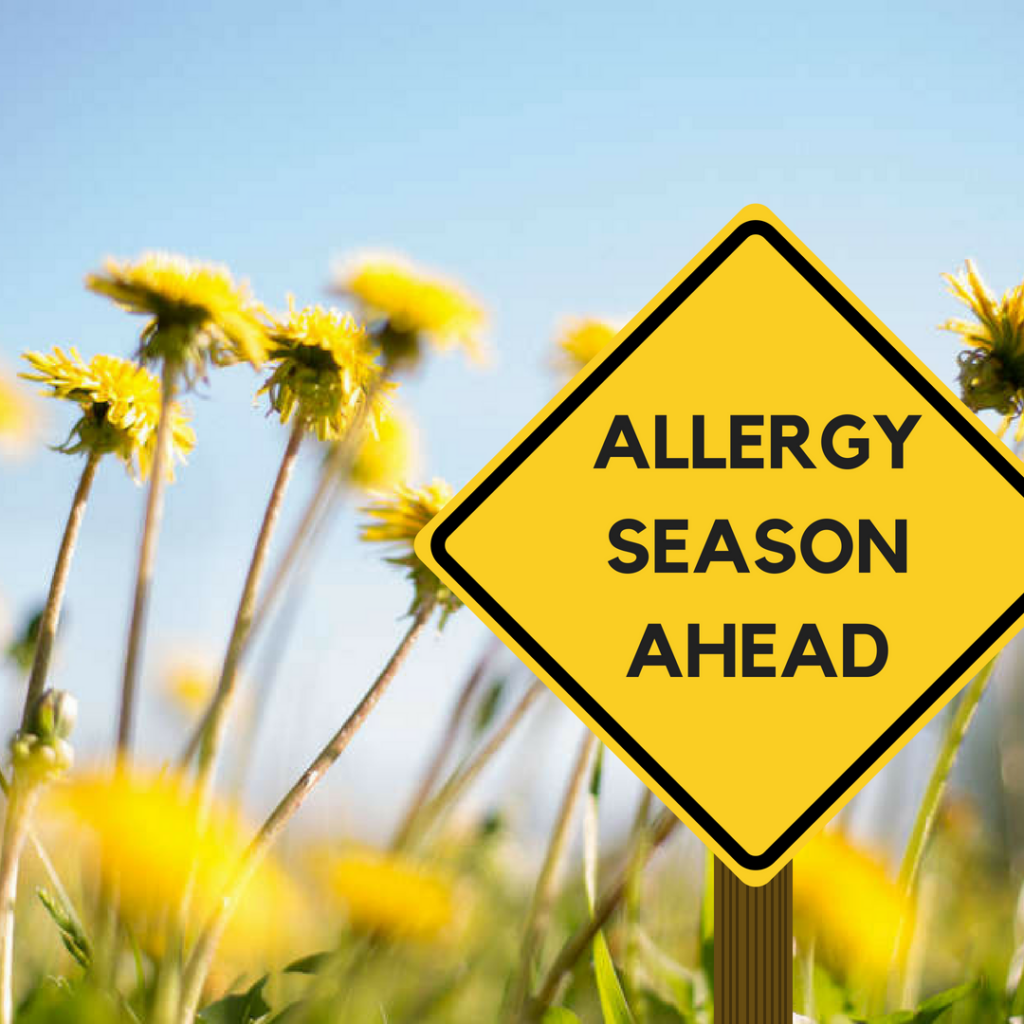
Spring has arrived and, for many people, the misery of seasonal allergies as well. People with recurrent allergies every year—also known as hayfever—will recognize the typical symptoms of itchy/watery eyes, a runny and stuffy nose, and frequent sneezing, but they still may find themselves without the right allergy relief drugs on hand. Those who have spring allergies for the first time may wonder whether they have a cold that hangs on forever; the major difference is the intense itching of the nose and eyes caused by allergies. Some allergy sufferers also develop asthma symptoms such as a recurrent cough or wheezing, especially after working out. Sleep may become poor and interrupted, leading to fatigue and irritability during the day as well as poor job and school performance. The tendency to develop allergies is strongly inherited, with some family members being spared or having only mild symptoms. Seasonal allergies usually start in childhood, during adolescence, or in early adulthood.
So what brings on allergies in Colorado every spring, summer and fall? It’s the tiny pollen grains from wind-pollinating plants such as trees, grasses and weeds. Most allergy-causing plants have small, inconspicuous flowers that many people don’t notice; their pollen is light and carried by the wind for many miles. Don’t blame our gorgeous crabapple, plum or smoke trees in Denver, nor forsythias or other showy shrubs and bushes, however! As a golden rule, large and beautiful garden flowers including roses do not cause allergies because they are pollinated by bees and other insects.
Although allergies cannot be cured, they can be controlled. Make a run to the drugstore or local grocery store where you’ll find open shelves of safe and effective allergy medications that used to be available only by a doctor’s prescription. The vast range of medications, from allergy pills with common brand names and their generic alternatives to various nasal sprays and eye drops may be confusing, though.
I will try to sort through some of these options and help you with the right selection. Forget about the old-timer Benadryl that tends to make people sleepy and is unsafe for use when driving, bicycling, and operating machinery or heavy equipment.
Look for “non-drowsy” antihistamine pills such as Allegra or Claritin. Zyrtec, a popular brand, may still make you sleepy and should best be taken at bedtime. These choices are also available as generic pills. If your eyes are the major problem, look for specific allergy-relief eye drops such as Alaway or Zaditor. The most effective treatment, however, and nowadays considered the “first-line choice,” is corticosteroid nose sprays such as Flonase or Nasacort, which are also available in generic form. These sprays may take a couple of days to work. A new over the counter nasal spray available this year that provides fairly quick relief is Astepro, which delivers a special antihistamine. All of these medications have a long proven history of safety, are available in smaller dosages for children, and can be taken during pregnancy, though I highly recommend talking to your doctor and obstetrician if you are or plan to become pregnant.
That being said, the most effective treatment is prevention. Start your medication at the onset of allergy season and continue until the season is over. You may require a combination of meds during the peak of pollen season. For best results, take them before pollen exposure; before you walk or jog in your neighborhood, have a picnic in a park, mow your lawn, walk your dog, or attend an outdoor social event. If your allergies become more severe each year, consult an allergist and inquire about allergy shots. For up-to-date and trustful information, check out the American Academy of Allergy, Asthma & Immunology (aaaai.org) or The American College of Allergy, Asthma & Immunology (acaai.org). My motto to all allergy sufferers: enjoy the outdoors, don’t endure the allergy season!
Roswitha Moehring, M.D., is a retired allergist in North Denver and is not affiliated with a medical practice or any pharmaceutical companies.

Be the first to comment